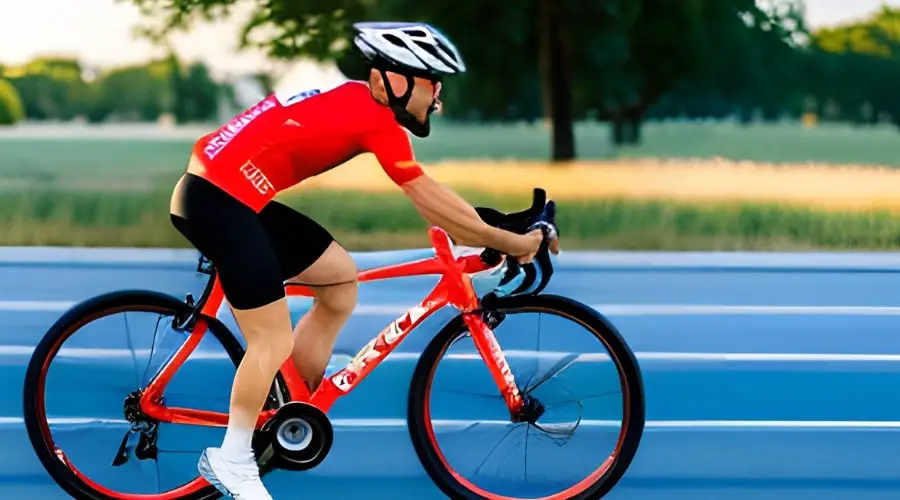When it comes to cycling, safety should always be a top priority. One of the most essential pieces of safety equipment is a helmet. In this article, we’ll explore the laws surrounding bicycle helmet use in Texas and discuss the importance of wearing a helmet, choosing the right helmet, and maintaining your helmet properly.
Helmet Laws in Texas
State Laws
In Texas, there are no statewide laws requiring cyclists of any age to wear a helmet. However, this doesn’t mean you shouldn’t wear one. Helmets are crucial for protecting your head and brain from potential injuries in case of an accident.
Local Laws
While Texas doesn’t have a statewide bicycle helmet law, some local jurisdictions have their own helmet requirements, especially for minors. For example, cities like Austin, Dallas, and Houston have laws in place requiring children under the age of 18 to wear a helmet while cycling. It’s essential to familiarize yourself with your local laws to ensure you’re in compliance.
The Importance of Wearing a Helmet
Safety Statistics
According to the National Highway Traffic Safety Administration (NHTSA), helmets are about 85-88% effective in preventing head and brain injuries. Wearing a helmet can reduce the risk of head injury by 50%, and the risk of head, face, and neck injury by 33%.
Reducing the Risk of Injury
When you wear a helmet, you’re taking an essential step to protect yourself from potential injury. Even a minor fall can cause a serious head injury, and helmets provide a vital layer of protection. Remember, helmets aren’t just for high-speed crashes – they’re also helpful for everyday cycling.
Choosing the Right Helmet
Types of Helmets
There are several types of bicycle helmets available, including road, mountain, and recreational helmets. Road helmets are lightweight and offer excellent ventilation, while mountain helmets provide additional coverage for the back of the head. Recreational helmets are versatile and are suitable for casual cyclists and commuters.
Proper Fit and Sizing
A helmet that fits correctly is essential for providing adequate protection. When selecting a helmet, measure your head’s circumference and choose a helmet that fits snugly without being too tight. Most helmets come with adjustable straps and retention systems to help you achieve the perfect fit.
Helmet Replacement
Helmets should be replaced after a significant impact or every 3-5 years, depending on usage. Over time, the protective materials in helmets can degrade, reducing their effectiveness. Regular inspection for signs of wear and damage is essential to ensure your helmet remains in good condition.
Helmet Use Tips
Adjusting Your Helmet
When wearing your helmet, it should sit level on your head, with the front edge about an inch above your eyebrows. The straps should form a “V” shape under your ears, and the buckle should be centered under your chin. Adjust the straps and retention system as necessary to ensure a secure fit.
Maintaining Your Helmet
To keep your helmet in good condition, clean it with mild soap and water as needed. Avoid using harsh chemicals or solvents, as they can damage the helmet’s materials. Store your helmet in a cool, dry place, away from direct sunlight, to prevent the materials from breaking down.

Advocacy and Education
Promoting Helmet Use
Many organizations promote helmet use and bicycle safety through various initiatives, including providing free or low-cost helmets to those in need. These programs aim to increase helmet usage, especially among children and low-income communities, where access to helmets might be limited.
Educational Programs
Schools, community centers, and local governments often provide bicycle safety education programs to teach children and adults about the importance of helmet use and other safety measures. These programs may include hands-on instruction on proper helmet fitting, bike maintenance, and safe riding practices.
FAQs:
Q: Are there any penalties for not wearing a helmet in Texas?
A: While there are no statewide penalties for not wearing a helmet, some local jurisdictions have their own laws and penalties, particularly for minors. It’s essential to know your local laws to avoid any fines or penalties.
Q: How do I know if my helmet is still safe to use?
A: Regularly inspect your helmet for signs of wear, damage, or degradation. If your helmet has been involved in a significant impact or is more than 3-5 years old, it’s time to replace it.
Q: Can I use a helmet for other activities, like skateboarding or rollerblading?
A: Some helmets are designed for multi-sport use, but it’s essential to choose a helmet specifically designed for the activity you’re participating in to ensure adequate protection.
Q: What should I look for when buying a helmet?
A: When buying a helmet, consider the type of cycling you do, the helmet’s size and fit, and its safety features. Look for helmets that meet safety standards set by organizations like the Consumer Product Safety Commission (CPSC) or the Snell Memorial Foundation.
Q: How can I encourage others to wear helmets?
A: Lead by example by always wearing a helmet when cycling, share information about the importance of helmets, and support organizations promoting bicycle safety and helmet use. Encourage your community to participate in educational programs and helmet distribution initiatives.
Conclusion
While Texas does not have a statewide law requiring bicycle helmet use, it is crucial to prioritize your safety and wear a helmet while cycling. Helmets provide essential protection from head injuries and can be the difference between a minor accident and a life-altering injury. By choosing the right helmet, ensuring a proper fit, and maintaining your helmet, you’re taking important steps to stay safe on your bike.
Helmetslab is a website that focuses on providing in-depth reviews and information about different types of helmets, including motorcycle helmets and others helmets. I am writing a post with proper research on the info that helps helmet users.


